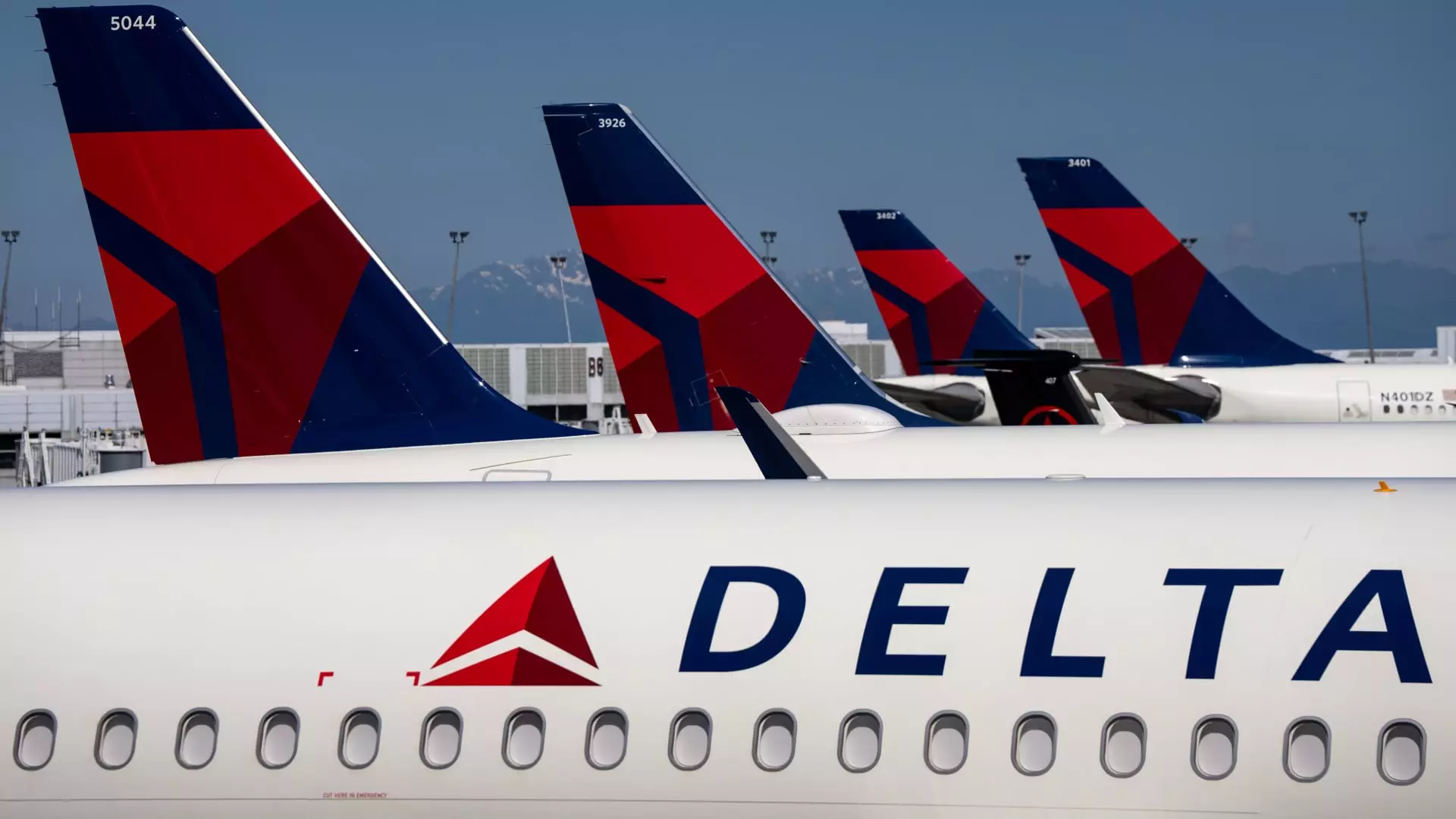In a rapidly changing economic landscape, Delta Air Lines has found itself facing unexpected headwinds as it navigates through declining travel bookings. The airline’s Chief Executive Officer, Ed Bastian, has been vocal about the challenges presented by President Donald Trump’s fluctuating trade policies, describing them as “the wrong approach.” This assessment is particularly poignant given Delta’s reputation as one of the most profitable airlines in the United States, which made its recent forecast of flat capacity for the remainder of 2025 feel jarring. Once steeped in optimism, the airline now must look to adapt its strategies in response to a downturn in consumer confidence that has begun to affect travel patterns.
Adjustments in Revenue Projections
The latest forecasts from Delta indicate a potential revenue decline of up to 2% in the second quarter compared to the previous year, while Wall Street analysts had projected a modest growth of around 1.9%. Moreover, although Delta expects adjusted earnings per share to land between $1.70 to $2.30, these figures fall short of analysts’ collective estimate of $2.23 per share. Such dissonance not only reflects the shifting realities of consumer travel demand but also signifies the challenges airlines are grappling with in achieving profitability amid economic uncertainty. This situation has compelled Delta to remain prudent with its financial guidance, particularly regarding its long-term projections for 2025, as the airline chooses to prioritize a stable outcome over ambitious growth predictions.
Declining Corporate and Leisure Travel
Bastian’s remarks about weakening travel demand are critical as they highlight a shift in consumer behavior, particularly among business travelers who are reassessing the necessity of travel amidst economic turbulence. The initial optimism of strong travel demand that characterized early 2025 appears to be fading, with an alarming slowdown witnessed since February. Delta’s adjustments are further compounded by the potential ramifications of reduced government personnel and corporate uncertainty, which have led to an overall dip in demand. Ironically, international and premium travels have shown some resilience; however, the sustained traveler base remains precariously uncertain and subject to external economic influences.
The Impact of Broader Economic Factors
As Delta grapples with these internal challenges, broader economic factors play a significant role in shaping its strategies. The airline industry is not only fighting the immediate impacts of reduced travel but is also adjusting plans in light of what analysts have described as a broader slowdown in economic momentum globally. With consumer sentiment dropping, Delta has pivoted to safeguard its margins and cash flow, an essential move that will likely dictate its operations moving forward. The looming concerns over global trade, particularly in relation to Trump’s policies, magnify the complex dynamics of running an airline that is so dependent on outward-facing economic conditions.
Strategic Focus Amidst a Fickle Market
What can be gleaned from Delta’s cautious outlook is a commitment to strategic resilience. By opting to scale back on capacity expansion, the airline aims to cushion itself against impending economic turbulence while controlling what is feasible within its operational framework. This strategy represents a departure from aggressive growth plans, signaling a new phase for Delta in which protecting cash flow and operating margins is paramount. Furthermore, industry analysts expect Delta’s cautious approach may become a trend among its rivals, with other airlines likely to follow suit in light of similar economic forecasts.
Considering that Delta has already seen a shift in financial performance in the first quarter—evidenced by net income increasing to $240 million from $37 million the prior year—it highlights the necessity of adaptability in face of changing external conditions. Though their outlook is tempered by uncertainty, the airline’s historical profitability and focus on key performance metrics will undoubtedly play a role in how successfully they can weather this current storm.
In essence, Delta Air Lines’ approach during this challenging time reveals much about the airline’s resilience and willingness to pivot in response to market realities. In a sector as volatile as air travel, it is this strategic foresight that may ultimately dictate Delta’s trajectory in the coming months, underscoring the importance of adaptability in an uncertain economy.


Leave a Reply